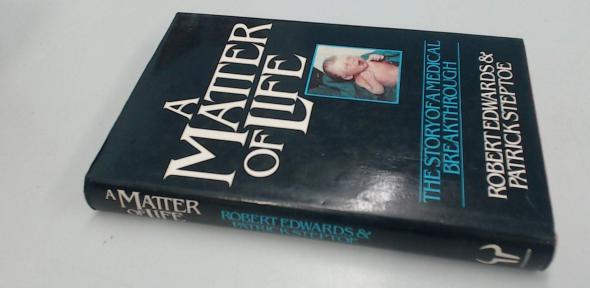
Submitted by T. Smyth on Tue, 23/09/2025 - 09:37
Research uncovers how a poet-physician turned the innovation in assisted reproduction into a moving story and amplified the women involved.
Previously unseen documents show how a poet performed a major ghostwriting job on the autobiography of the two British pioneers behind the world’s first “test-tube baby”, so that the book used emotional storytelling to aid public acceptance of a controversial medical technology.
A Matter of Life, co-authored in 1980 by geneticist Robert Edwards – who spent much of his career at Cambridge and went on to win the Nobel Prize – and gynaecologist Patrick Steptoe, tells how their research led to in vitro fertilisation (IVF). The book is the basis for last year’s Netflix film Joy.
A study of Dannie Abse’s archive in the National Library of Wales by Cambridge Reproduction co-chair Professor Nick Hopwood reveals how Abse overhauled reams of rough and underwhelming text submitted by the duo to a publisher that had bought the doctors’ story of the “baby of the century” in the hope of a quick bestseller.
“Abse improved and enriched the story in many ways. Some changes are problematic as history but without his work very few people would have read the book, which might not even have been published,” said Hopwood. “Abse helped them promote IVF at a time when the technique was controversial.”
Abridged and adapted from an original article from the University of Cambridge
Read more: N. Hopwood (2025), The ghostwriter and the test-tube baby: a medical breakthrough story, Medical History , First View , pp. 1-24, DOI: https://doi.org/10.1017/mdh.2025.10025.

